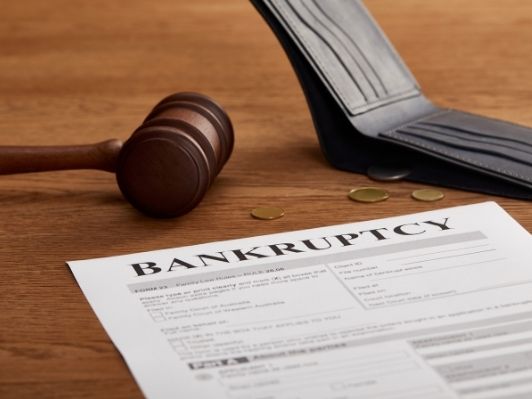For most people, declaring yourself bankrupt is the last resort. If you’ve taken out short term loans, payday loans and other debts that you can’t pay back, you might have no other choice.
You could also be declared bankrupt involuntary. If you owe more than £5,000 to a creditor, they could ask a court to make a bankruptcy order.
If you are going to declare bankruptcy, make sure you know the facts. Get help and advice before going ahead. To get you started, we’ll tell you a bit about what happens when you’re declared bankrupt in the UK.
Table of Contents
What Happens After You Declare Bankruptcy?
Once you’ve been declared bankrupt, you’ll be appointed with an official receiver. They’ll get in touch with you to obtain details about all your finances. They’ll also check through all the assets you own. This is because any assets you have can be sold to pay off your debts. Any excess income you have can be taken too.
The official receiver will then take control of all your assets, unless an insolvency practitioner is appointed. Whoever takes over your assets will become the trustee. And by law, you must cooperate with the trustee. They’ll be in charge of selling your assets and collecting money. The trustee will then talk to your creditors about how the money will be shared out between them. If there’s any money left over, you’ll get it back.
Effects of Declaring Bankruptcy
Being bankrupt can affect your life in different ways, both good and bad.
To begin with, let’s look at the upsides of bankruptcy.
- You’ll no longer have the worry and stress of having debts you can’t pay back. Your trustee will take care of everything, and you’ll no longer have creditors chasing you for debt repayments.
- You may not lose everything straight away. If you own your home and have a partner or child living with you, it could help. In these cases, the trustee may not sell your home for one year after the date of your bankruptcy. Also, you can keep essential items like clothes, furniture and bedding, or tools that you need for work.
- You’ll be able to keep some of your income. The trustee will only take the excess income that you don’t need to live on. If you’re on benefits though, none of it will be taken.
- After you’ve been declared bankrupt, your creditors cannot take you to court to get back what you owe them. That’s so long as they’re included in your bankruptcy.
- Once your bankruptcy has ended, you’ll be free of all debts that were included in it. This is known as being discharged. It usually happens 12 months after your date of bankruptcy.
Now we’ll look at the downsides of being bankrupt.
- You could lose a lot of what you own, including your home. Even if your bankruptcy is discharged after 12 months, your excess income could be taken for up to three years.
- Your bank account would be frozen. The trustee will only release what you need to live on.
- Your bankruptcy could stay on your credit file for up to 6 years. This could make it more difficult for you to borrow money.
- If you’re self-employed, your business will be closed. Any assets it has could be taken by the trustee.
- Not all debts are covered by your bankruptcy. For example, student loans, court fines, and any loans you take out after the bankruptcy would be excluded. You’d still have to pay these.
- Your bankruptcy would be published for the public to see.
- Some businesses don’t let people carry on working for them if they’ve been made bankrupt.
- If you want to borrow more than £500 after being made bankrupt, you must tell the lender about your bankruptcy. If you don’t tell them you’d be breaking the law.
These points don’t cover everything, but they give you an idea of the type of things you can expect. Unless you’ve already been declared bankrupt, you should think carefully if it’s the right thing for you to do. Make sure you find out what your options are when you’re struggling to pay back your debts.
There are plenty of sources you can go to for free help and advice. The Citizens Advice Bureau and the MoneyHelper service are both good places to start.
Remember, if you are declared bankrupt all is not lost, at least it leaves you free to make a fresh start.
Disclaimer: This isn’t professional advice and is for information only. If you are considering Bankruptcy, we recommend you seek personal debt advice. Free debt advice can be found via MoneyHelper. Also – any links included above are for reference only and Lending Stream are not recommending any particular partner or provider.

